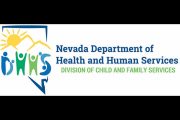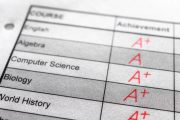
Christian schools, parents, and lawmakers — including some Democrats — are sounding the alarm over a bill in the Illinois House of Representatives that would heavily regulate homeschooling and private schooling.
House Bill 2827, known as the Homeschool Bill, would require homeschool parents to supply local and state education authorities with personal information about their children and what they are being taught. It would subject them to home visits from bureaucrats and threaten them with jail time if they failed to file the required forms on time. It would also establish similar regulations for private schools.
Up to now, the Prairie State has taken a hands-off approach to both homeschools and private schools. But, seizing on a single case of abuse of a homeschooled child, Democratic State Representative Terra Costa Howard introduced the Homeschool Bill to accomplish what Democrats and their allies in the teachers’ unions have long desired, namely bringing nonpublic education under the state’s thumb.
The Reverend Michael Mohr, president of the Lutheran Church-Missouri Synod’s Central Illinois District, maintained:
The underlying presupposition of this bill is that children are wards of the state that are granted to their parents and the various private schools by leave of the state to raise them as the state sees fit, rather than the rearing and educating of children being the responsibility of the parents God gave them.
Bad Form
According to the Illinois Policy Institute (IPI), a Chicago-based free-market think tank, the bill has “been downplayed as simply filling out a form, but [it] involves much more.”
The bill requires all homeschooling families to submit a “homeschool declaration form” annually to their local school districts. The form, wrote IPI,
mandates the reporting of personal information including, at a minimum, the child’s name, birthdate, grade level and home address, as well as the name, birth date, contact information and home address of the homeschool administrator.
However, “there is no limit on what information could be required on the form.” In fact, since one of the reports the state board of education must compile based on the forms includes a breakdown of homeschooled kids by “gender identity,” a demand for that information will surely be added to the form.
Homeschool parents could be jailed and fined if they fail to submit the form on time.
“It’s just a form, they say. It creates a new pathway to criminalization,” Chris Butler, a black pastor and former Democratic congressional candidate, said at a Thursday rally against the bill.
Butler told the Center Square:
While it’s been cast by the supporters and the sponsor of this bill as something dangerous, the homeschooling movement is the most hopeful thing that is happening in education, especially in this state of Illinois, and there’s just no reason to try to get anything in the way of that.
Similarly, black Democratic State Representative La Shawn Ford said at the rally, “This bill is a pipeline to the criminal justice system for parents, and I can’t stand for that. How can we criminalize parents for wanting to love their children?”
Big Brother’s Bureaucracy
The bill’s dangers extend far beyond the penalties for reporting requirements.
For example, it mandates that homeschool families keep an “education portfolio” documenting what their children are learning. As with the declaration form, the types of information bureaucrats could force parents to supply is limitless — and they could demand to see the portfolio “at any time and for any reason,” asserted IPI.
The bill also imposes similar registration and reporting requirements on private schools, including religious ones.
The Catholic Conference of Illinois, which opposes the legislation, argued:
Forcing our Catholic schools to provide personally identifiable data of our students and families not only violates a basic trust between the school and the family, but also codifies an overreaching State policy that creates an intrusive relationship between the State and private institutions.
Furthermore, cautioned IPI, the reporting requirements create “a registry of residents’ religions.” Homeschool families’ education portfolios would probably reveal their religious beliefs, and religious schools’ reports would tell bureaucrats which children are being educated in which faith.
The Homeschool Bill’s reporting requirements aren’t its only murky provisions. Indeed, the entire bill is chock full of vague language empowering bureaucrats to investigate suspected violations of their edicts.
In addition, the bill’s oversight requirements, which involve everyone from the local school district to regional offices to the state board of education, are likely to cost taxpayers a pretty penny (or, with pennies out of production, a nifty nickel).
Hostile Witnesses
According to IPI, “the bill has generated historic opposition.” The current version of the bill alone has garnered more than 51,000 “witness slips” in opposition — the most since online filings began during the 2011-2012 legislative session — and only about 430 in favor.
It’s worth noting, as IP does, that the reporting requirements of the Homeschool Bill are far more stringent than those the state imposes on public schools, whose record is dismal. The Chicago Tribune observed in a scathing editorial:
Why, we ask, are politicians focusing so much attention on homeschooling and private school accountability when, statewide, only 30% of fourth-graders in the public school system can read at grade level?
What’s the sales pitch? “Come to public school, where there’s a 30% chance you might learn to read”? We wish our lawmakers were spending more of their time pursuing ideas to improve our public schools instead of impeding private ones.




